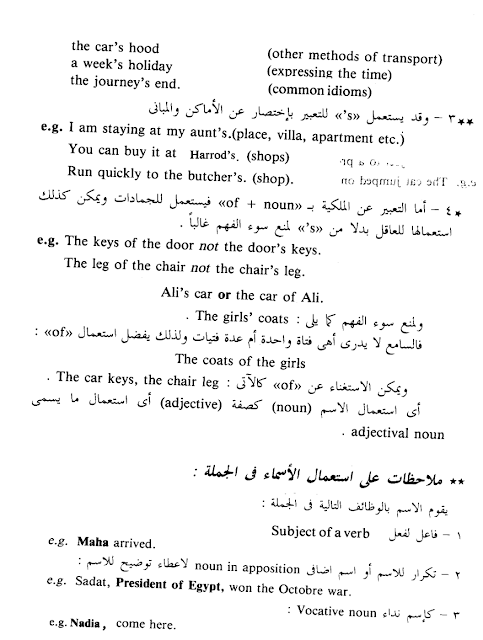-ing forms
-ing forms
We can use the -ing form of the verb:
• as a noun:
I love swimming.
Swimming is very good for your health.
You can get fit by swimming regularly.
-ing nouns are nearly always uncount nouns
Swimming is very good for your health.
You can get fit by swimming regularly.
-ing nouns are nearly always uncount nouns
- as an adjective:
The main problem today is rising prices.
That programme was really boring.
He saw a woman lying on the floor.
That programme was really boring.
He saw a woman lying on the floor.
Because the -ing noun or adjective is formed
from a verb it can have any of the patterns which follow a verb,
for example:
- ... an object:
I like playing tennis.
I saw a dog chasing a cat.
I saw a dog chasing a cat.
You can earn a lot of money by working hard.
There were several people waiting for the bus.
There were several people waiting for the bus.
- ... or a clause:
I heard someone saying that.
The -ing noun can be used:
- as the subject of a verb:
Learning English
is not easy.
- as the object of a verb:
We enjoy learning English.
Common verbs followed by an -ing object are:
|
admit
|
like
|
hate
|
start
|
avoid
|
|
suggest
|
enjoy
|
dislike
|
begin
|
finish
|
- as the object of a preposition
Some people are not interested in learning English.
The -ing adjective can come:
- in front of a noun:
I read an interesting article in the newspaper today.
We saw a really exciting match on Sunday.
We saw a really exciting match on Sunday.
The commonest –ing adjectives used in front of the
noun are
|
amusing
|
interesting
|
worrying
|
shocking
|
disappointing
|
|
boring
|
surprising
|
exciting
|
terrifying
|
frightening
|
|
tiring
|
annoying
|
|
|
|
- after a noun:
Who is that man standing over there?
The boy talking to Angela is her younger brother.
The boy talking to Angela is her younger brother.
- and especially after verbs like see, watch, hear, smell etc.
I heard someone playing the piano.
I can smell something burning.
I can smell something burning.

Comments
Post a Comment